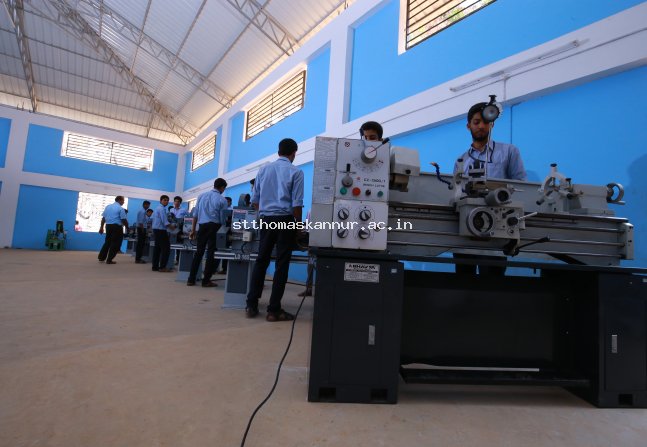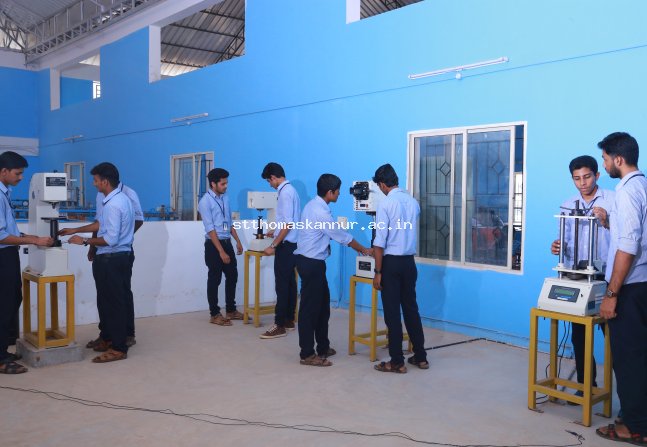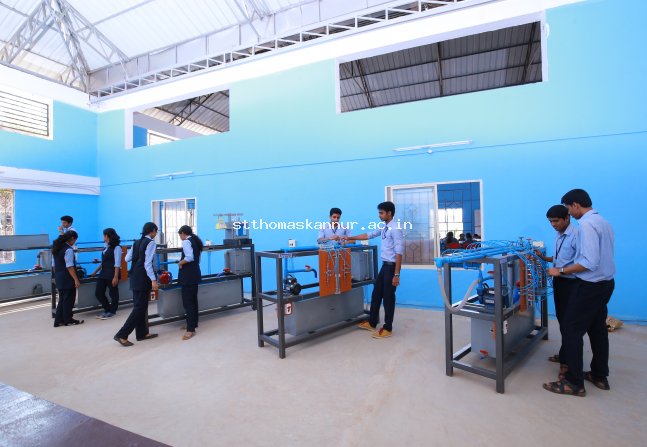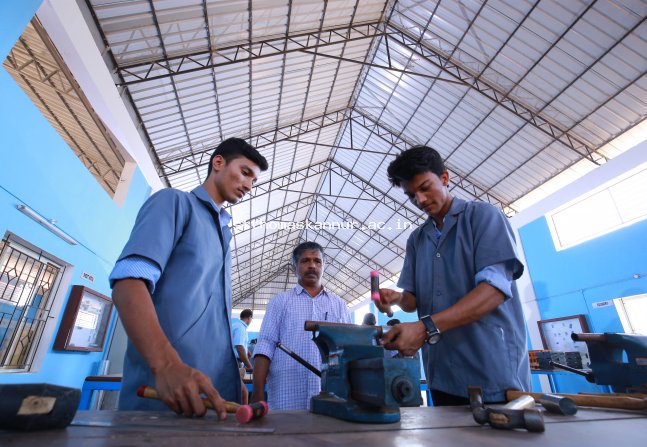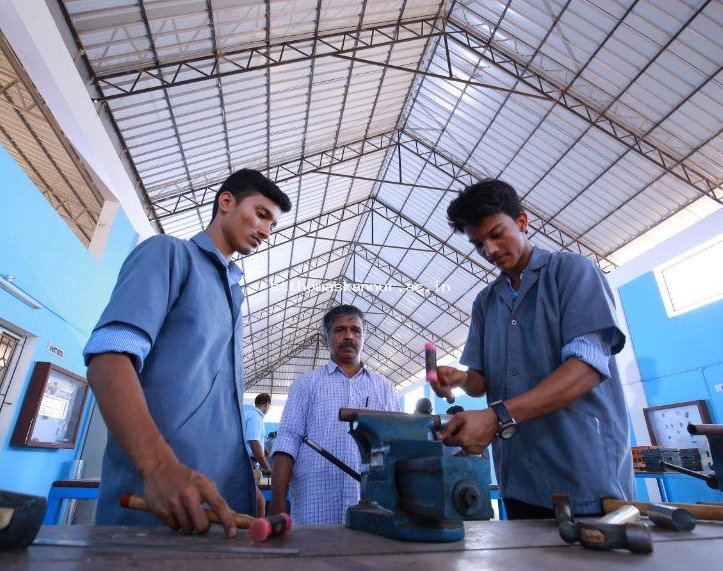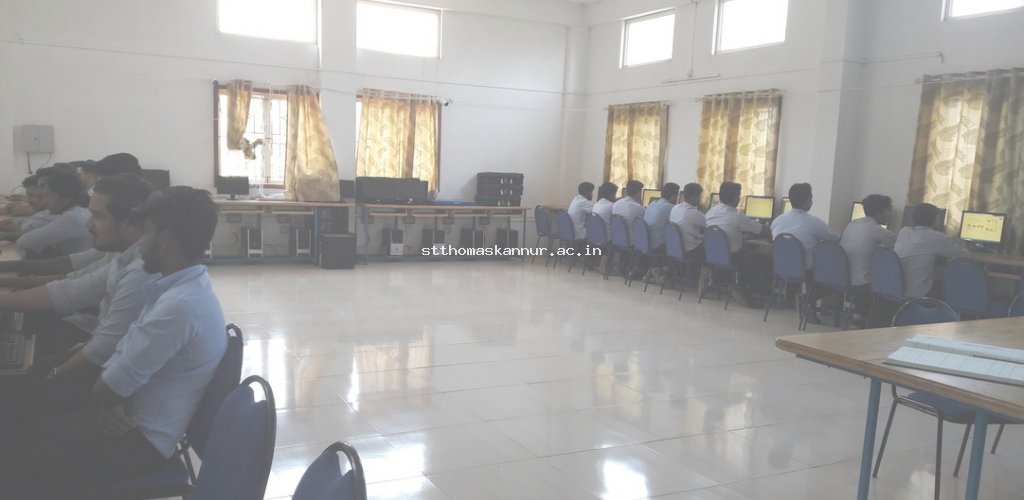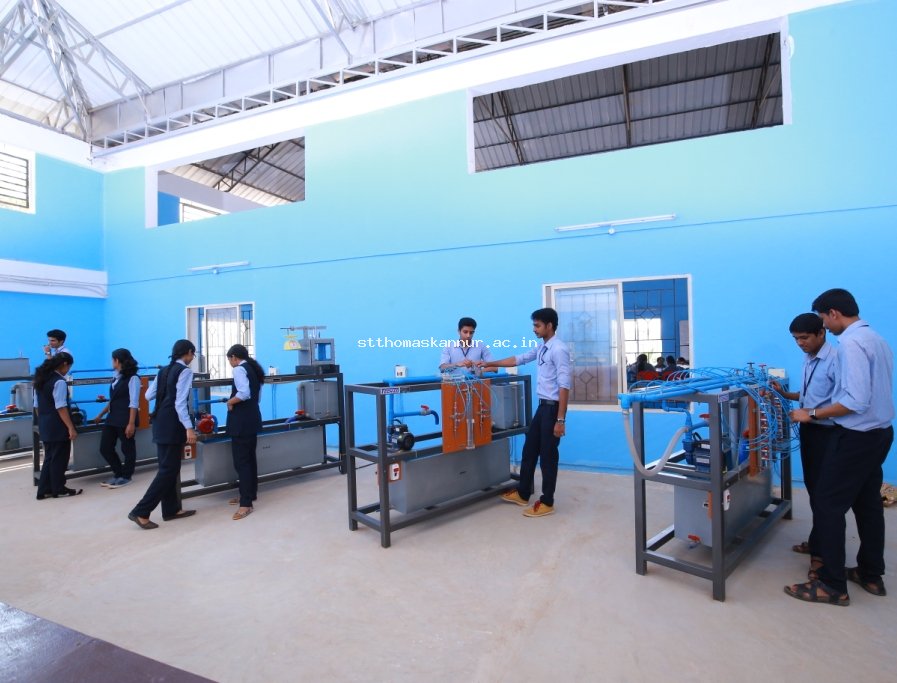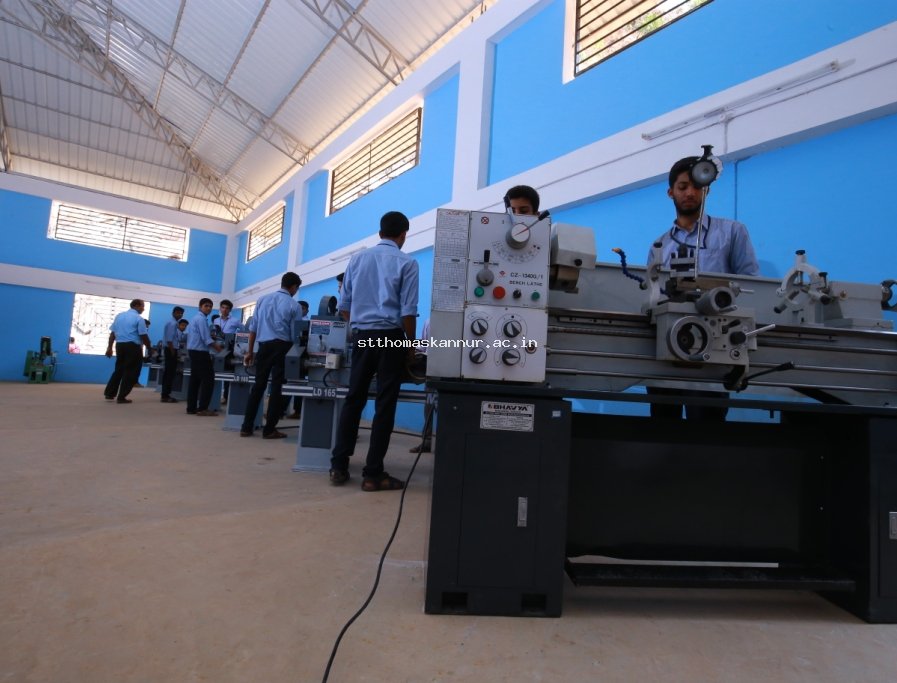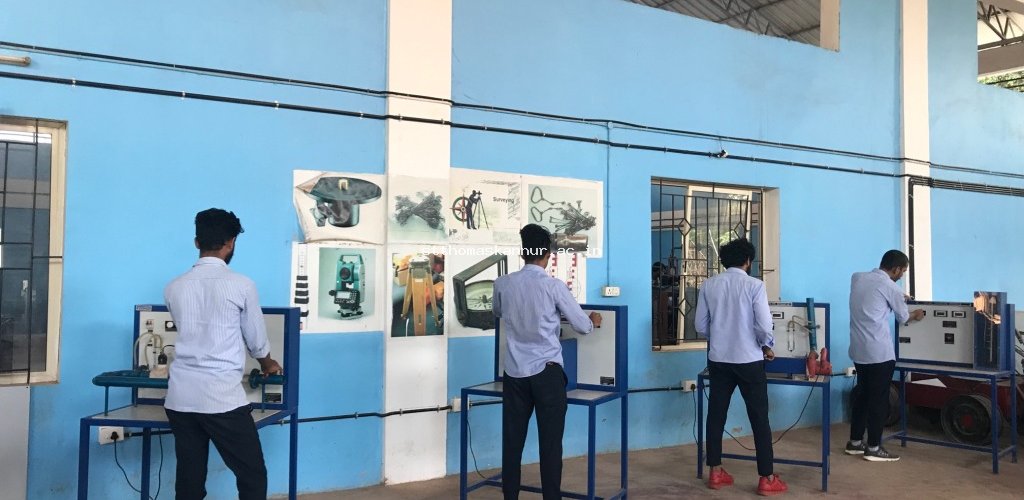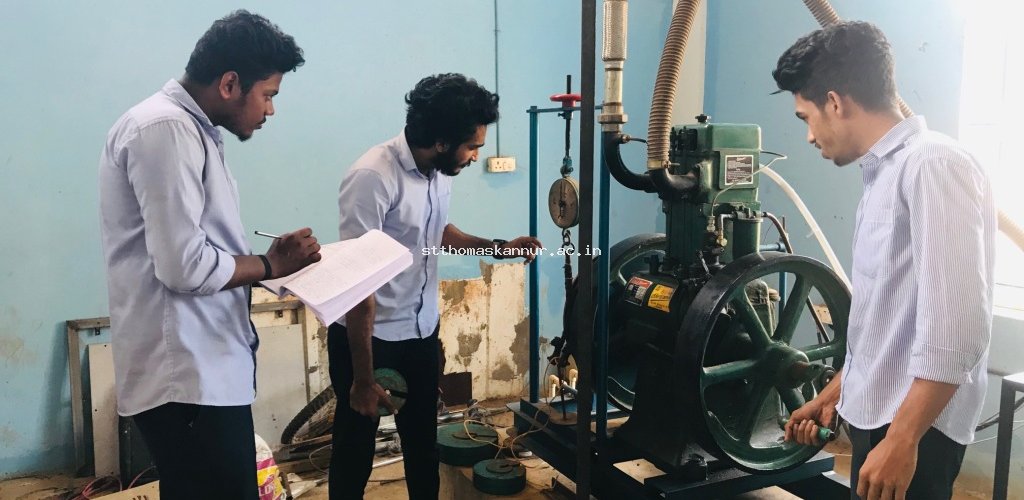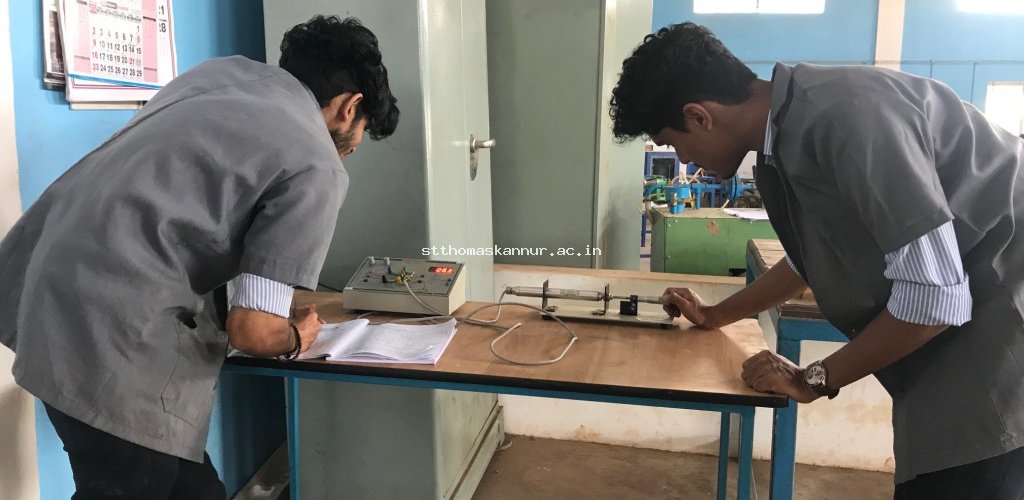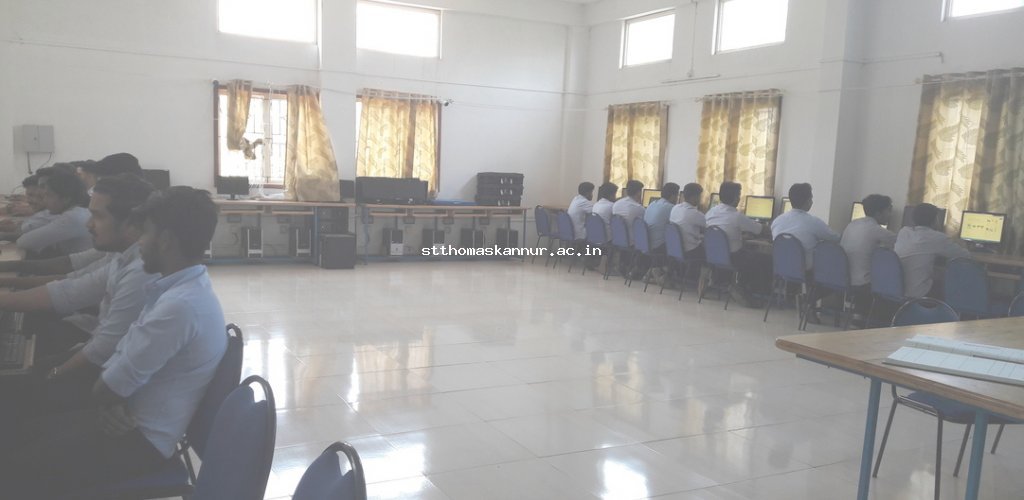The pioneer and most popular branch of engineering, Mechanical Engineering courses are designed to provide students with necessary depth in their chosen area of specialization, while also offering sufficient backup knowledge to maintain breadth in the general technological scenario. Special efforts are made to enable students to translate theoretical knowledge into laboratory and field-level experience. A modern and well-equipped mechanical lab is available with sufficient machines and equipment.
Vision
To develop competent and ethically strong mechanical engineers by imparting value-based, innovative technical education.
Mission
M1 Professional Skill:
To foster creativity, knowledge, and analytical abilities for transforming ideas into reality by ensuring the provision of adequate resources.
M2 Lifelong Learning:
Instill lifelong professional skills through engagement with academics and industry experts.
M3 Engage with Society:
Participate in social programs on and off campus to connect with society.
Program Educational Objectives (PEO)
PEO1 Professional Practices:
Achieve excellence in professional practices in Mechanical Engineering by applying knowledge and technical skills, effectively utilizing modern tools and technologies.
PEO2 Intrapreneurial Skills:
Demonstrate the ability to work effectively in multidisciplinary teams, contributing to organizational goals and benefiting society in a professional and ethical manner.
PEO3 Lifelong Learning:
Pursue lifelong learning and continuous professional development to keep pace with evolving technological advancements in engineering.
Program Specific Outcomes (PSO)
PSO1 Engineering Aspects:
Utilize expertise in mechanics, thermal, and fluid sciences to address various engineering challenges.
PSO2 Industrial Practice:
Employ cutting-edge CAD/CAM tools to design, develop, and improve the effectiveness of new concepts for product design and manufacturing while adhering to industrial practices.
Program Outcomes (PO)
Engineering graduates will be able to:
PO1 Engineering Knowledge:
Apply knowledge of mathematics, science, engineering fundamentals, and specialization to solve complex engineering problems.
PO2 Problem Analysis:
Identify, formulate, review research literature, and analyze complex engineering problems to reach substantiated conclusions using first principles of mathematics, natural sciences, and engineering sciences.
PO3 Design/Development of Solutions:
Design solutions for complex engineering problems and design system components or processes that meet specified needs with consideration for public health, safety, and cultural, societal, and environmental factors.
PO4 Conduct Investigations of Complex Problems:
Use research-based knowledge and methods including design of experiments, data analysis, and synthesis to provide valid conclusions.
PO5 Modern Tool Usage:
Create, select, and apply appropriate techniques, resources, and modern engineering and IT tools including prediction and modeling for complex engineering activities, understanding their limitations.
PO6 The Engineer and Society:
Apply reasoning informed by contextual knowledge to assess societal, health, safety, legal, and cultural issues and the consequent responsibilities relevant to professional engineering practice.
PO7 Environment and Sustainability:
Understand the impact of professional engineering solutions in societal and environmental contexts, demonstrating knowledge and need for sustainable development.
PO8 Ethics:
Apply ethical principles and commit to professional ethics, responsibilities, and norms of engineering practice.
PO9 Individual and Team Work:
Function effectively as an individual, and as a member or leader in diverse teams and multidisciplinary settings.
PO10 Communication:
Communicate effectively on complex engineering activities with the engineering community and society at large, including writing reports, design documentation, presentations, and clear instructions.
PO11 Project Management and Finance:
Demonstrate knowledge of engineering and management principles and apply these to one's own work as a member and leader in a team to manage projects in multidisciplinary environments.
PO12 Lifelong Learning:
Recognize the need for, and have the preparation and ability to engage in independent and lifelong learning in the broadest context of technological change.
Department Advisory Board
Er. Rijo Thomas Jose - MANAGEMENT REPRESENTATIVE
CEO, St. Thomas College of Engineering
Sivapuram, Mattanur, Kannur
Dr. Shinu Mathew John - CHAIRMAN
Principal, St. Thomas College of Engineering
Sivapuram, Mattanur, Kannur
Mr. Shreekiran - HOD, ME, STM (Convener)
Dr. V K Janardhanan - Retd. Deputy Project Director, GSLV (Industrial Expert)
Mr. Ravindra Menon - Former Project Manager, SILK (Industrial Expert)
Dr. Jithesh K - Associate Professor, ME, ASIET, Kalady (Academic Member)
Dr. Vineesh K P - Assistant Professor, ME, NIT Calicut (Academic Member)
Mr. Adarsh K K - Systems Engineer, INFOSYS, Mysuru (Alumni Member)
Program Assessment Committee
Prof. Shreekiran (HOD ME Dept) - Chairperson
Prof. Vijila Balakrishnan (HOD CE Dept) - Member
Prof. Chandrajith E (Assistant Professor ME Dept) - Member
Prof. Aswin P (Assistant Professor ME Dept) - Member
Prof. Adarsh Madhu (Assistant Professor ME Dept) - Member
Prof. Sujisha PP (Assistant Professor ASH Dept) - Member
Major Recruiters
Central and State Governments, ISRO, Defence, Oil Refineries, NTPC, L&T, Automobile Companies
Special Interest Groups
The department has following special interest groups to promote various research and development activities:
Thermal & Fluid Engineering
Promoters: Prof. Adarsh Madhu
Project Works
Title: MULTI PURPOSE AGRICULTURAL MACHINE
Batch: 2K14 Kannur University
Group Members:
ABISHAI P S (B4ENME 8703)
AKSHAY K (B4ENME 8706)
LIPIN N (B4ENME 8718)
RIJUN N (B4ENME 8723)

